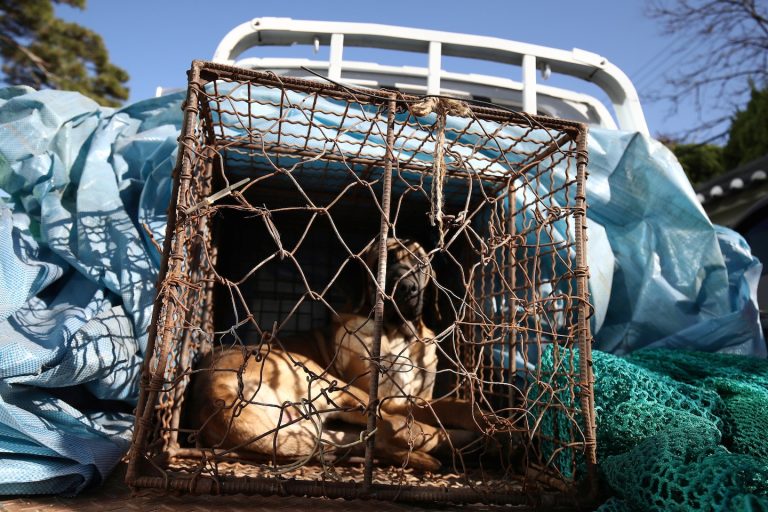In a 2022 Gallup Korea poll, more than 60 percent of South Koreans viewed the consumption of dog meat as inappropriate. Only 8% had eaten dog meat in the previous year, down from 27% in 2015. This shift was particularly evident among younger generations.
After the National Assembly's vote on Tuesday, activists celebrated the bill's passage as a historic moment for the country. “I never thought that in my lifetime I would see a ban on the cruel dog meat industry in South Korea,” Jungah Chae, executive director of Humane Society International Korea, said in a statement. “We have reached a turning point where most Korean citizens refuse to eat dogs.”
But some dog breeders told The Associated Press they plan to challenge the bill before South Korea's Constitutional Court.
Under the bill, a ban on the dog meat trade will be imposed starting in 2027. After that, slaughtering dogs for consumption could result in penalties of up to three years in prison or fines of 30 million South Korean won, or about $22,800. Breeding and selling dogs for human consumption can be punished by up to two years in prison or a fine of 20 million won, or about $15,200. The bill does not make eating dog meat a crime.
Businesses that breed, slaughter and sell dogs will be eligible for government compensation when they submit a plan to local authorities explaining how they plan to close their operations or transition to another industry. Rights groups such as the Humane Society International of Korea have helped dog farmers switch to growing crops, such as blueberries, medicinal herbs or parsley.
Groups representing dog breeders opposed the bill, arguing that the ban would deprive them of their livelihoods and violate people's rights. Some South Koreans continue to eat dog meat, especially on the hottest days of summer, known as “buknal,” as some believe that eating dog meat dishes such as “busentang” soup is good for the body.
Son Won Hak, a farmer and former leader of a farmers' association, told the Associated Press that the bill was “a clear case of state violence because it violates our freedom to choose our profession.” He told the AP that dog farmers will file a petition challenging the constitutionality of the bill.
Jo Young-bong, president of the Korea Dog Meat Growers Association, told The Washington Post in November, when the bill was first proposed, that it was “unworkable.” “Moving on from our lifelong mission is a difficult and unsustainable choice for us farmers in our 60s or 70s,” he said.
There are 1,156 registered dog farms in South Korea and 1,666 restaurants that sell dog meat every year, according to government data cited by the Korea Times. Groups representing breeders and farmers say the real numbers are two to three times higher. Previous efforts to ban dog meat in South Korea have failed in part due to industry opposition. A protest against the bill organized by the Korea Dog Meat Farmers Association in November near the presidential palace in Seoul turned chaotic, with some demonstrators confronting police, according to Reuters.
But animal rights groups say public attitudes have changed — partly because more South Koreans now own dogs as pets and feel more strongly about protecting them. According to the Ministry of Agriculture, 3.02 million dogs were bred as pets in South Korea in 2022, up from 1.3 million in 2018.
As The Post previously reported, the bill also had the support of South Korea's president, Yoon Suk-yeol, and his wife, First Lady Kim Keun-hye, who are known animal lovers and own several dogs and cats. Kim attended an animal rights event in August and said that “the consumption of dog meat must stop… in an age where humans and pets coexist as friends.”
Min-Joo Kim and Andrew Jeong contributed to this report.

